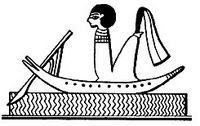Words may hurt more than sticks and stones
"Wars begin with words, so we should be careful how we speak, especially to nations where there is tension. Our words can heal the situation before the military takes up its weapons." ― Thomas MooreResurgence magazine shares Thomas Moore's interest in words through his article, "The Power of Language", in its January―February 2011 issue, no. 264. Moore writes:
"Years ago I was trained as a counsellor according to Carl Rogers’ method. He advised using simple words that let a person know he is heard and understood. On paper such words sound stiff: 'I really hear what you’re saying. You’re tired of speaking without being heard.' But if you mean what you say, your plain words can have immense power. The simple Rogerian method could help many a troubled relationship and many a spluttering politician.Moore shares, "My rule is: if the thought occurs to me to say something supportive, I say it. You can never speak too often in praise and appreciation."
As a therapist, I’m aware that 'talk therapy' has a poor reputation in places where a materialistic philosophy of drug treatments and behaviour management is strong. This turn away from the power of spoken interaction is part of the larger myth of our time: the enthronement of a materialistic and mechanistic world. But I still believe in the power of language, its capacity to hurt and to heal.
Our physical world is polluted with dangerous chemicals, but our language, too, suffers its own kind of pollution. This is an ecological problem that we can solve in our personal lives by learning about language and using it with care and imagination. The flow of our words could be as clear and fresh as the cascade of an unpolluted, free-flowing stream. We could then choose our words the way we plant a garden – thoughtfully and with an eye to beauty.
Labels: Thomas Moore













